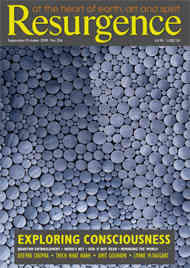Most of us have been there before. It is late at night and we are locked in heated discussion with our closest friends, setting the world to rights and prescribing the cure to our civilisation’s numerous maladies. The conversation ebbs and flows, positions are defended and points conceded until one by one we drift off to bed satisfied with our evening’s work. In Time’s Up! Keith Farnish has taken that process a step further and crafted the raw material of these intense, personal polemics into a thorough and well-argued book.
Industrial civilisation is killing us and the planet. That is the central tenet of this first book from environmental writer, philosopher and activist Farnish. It may be that some readers will not bat an eyelid at this idea, but have they really considered the implications of such a statement? Farnish doesn’t allow us to escape to a green world beyond “the fall”: he is concerned with the practical action we can take to survive, and even to hasten the demise of industrial civilisation.
The book is divided into four sections. The first of these, dealing with the scale of the problem, presents us with familiarly depressing reading, but nonetheless is essential to set the context for the ideas that follow. Chapter by chapter we are taken on a journey through the natural world, from the level of bacteria and viruses, past nematodes, bees and cod, to the Taiga, a vast swathe of spruce, pine, larch and fir enveloping much of northern Canada, Lapland and the entire length of the Russian nation. At each level the author lays the blame for destruction and potential disaster firmly at the door of our current way of life, the “Culture of Maximum Harm”.
In the next section we are asked to consider what and who we are, and to answer why this destruction of our ecosystem matters at all. Here Farnish provides a series of thought experiments to examine the place of humans in the natural world and the way in which we impart meaning to our existence. His conclusion is a surprisingly anthropocentric one, stating that no matter which way we look at the problem, being “simply humans who want to survive”, we can only say that “what really matters is what matters to us”.
The final two sections examine our connection to the natural world, how industrial civilisation robs us of that link, and how we can reconnect and help others to do the same. Farnish lists ten “Tools of Disconnection” – the methods by which civilisation co-opts our energy and diverts us away from the task of living a life in harmony with the natural world. Perhaps one of the least recognised of these tools is the means civilisation uses of giving us hope. This isn’t the “benign wish or blessing, that shows you care” kind of hope, but the quasi-religious hope that creates a breeding-ground for inaction. It is the denial of our ability to influence the future and a failure to recognise that we are the system – the major point of the closing section of the book.
If you accept Farnish’s arguments, then it is hard to avoid his conclusions. He contends that there is a need for each and every one of us to engage not only in major changes to our ways of life (consuming, eating, travelling, living, working, reproducing) as part of a withdrawal from civilisation, but also to actively undermine it. Another word we might use here is ‘sabotage’. This course of action, the author acknowledges, will involve breaking the law, and it is not presented without a series of caveats. Still, it is a big step to move from preparing to survive a collapse to actively encouraging it, no matter how necessary we may believe it is.
There is no blueprint contained in this book, no right way of living; in fact, that very concept is presented as a part of industrial civilisation that we must leave behind. Consequently we are left with more questions than answers. If we are to move beyond industrial civilisation as Farnish insists we must, how will we live? We cannot go back to some imagined ‘golden era’ of hunter-gatherers living in a land of plenty. It seems that the answer to that question can only come from people who are committed to this change working together, and from the inevitable late-night debates and arguments they will have.







